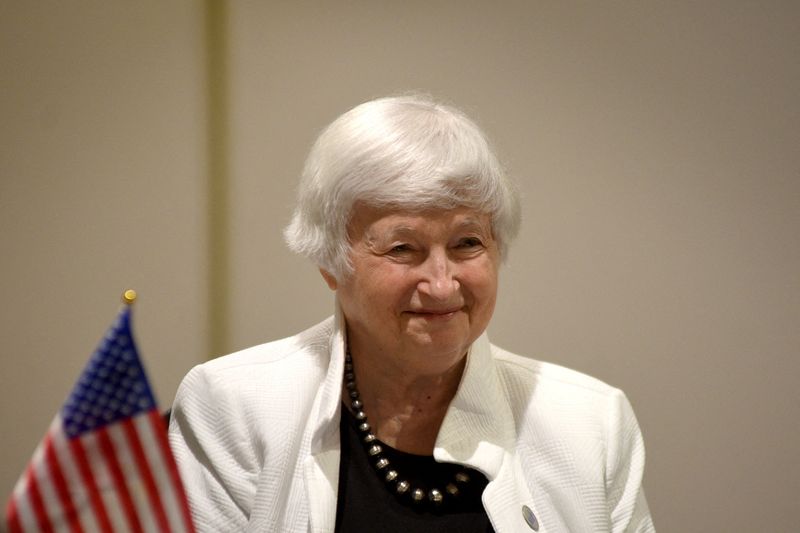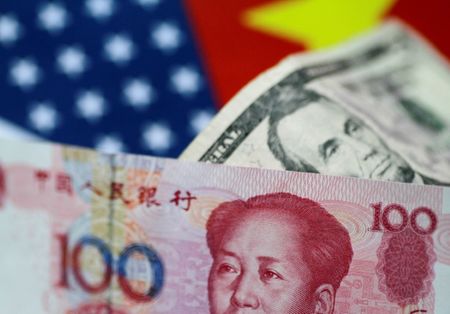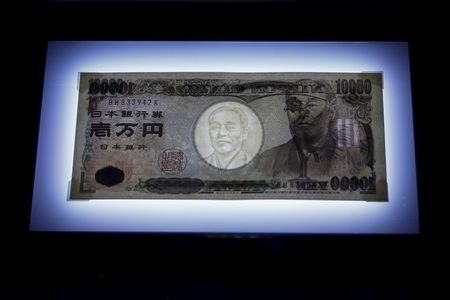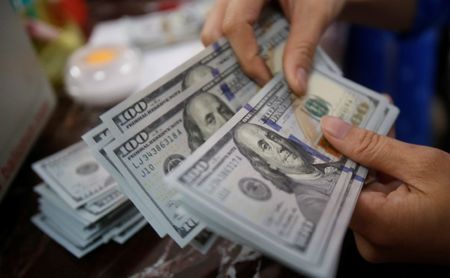The dollar edged lower in early European trade Tuesday as risk sentiment improved, but losses are small as the surge of cases of the Omicron variant prompts caution.
At 3 AM ET (0800 GMT), the Dollar Index, which tracks the greenback against a basket of six other currencies, fell 0.1% to 96.500.
USD/JPY rose 0.2% to 113.77, with the safe haven yen losing some ground despite Japan’s government raising its monthly view of the economy for the first time since the summer of 2020.
EUR/USD rose 0.1% to 1.1286, GBP/USD climbed 0.1% to 1.3221 while the risk-sensitive AUD/USD climbed 0.2% to 0.7125.
Still, despite these moves, “sentiment remains exceedingly fragile, complicated by rapidly thinning liquidity in asset classes ahead of the holiday season and year-end,” said Jeffrey Halley, an analyst at MarketPulse. “We are one headline away, be it Omicron or something else, from normal service resuming.”
The dollar took a hit on Monday from the news that U.S. Senator Joe Manchin, a moderate Democrat, will not support President Joe Biden’s $1.75 trillion domestic investment bill, effectively ending its hopes of passing through the Senate.
However, looking at the overall picture, the bigger picture, the dollar remains strong after the U.S. Federal Reserve’s hawkish turn last week, speeding up the withdrawal of its bond-buying program and thus potentially moving up interest rate hikes to the first half of 2022.
Also, the dollar retains its safe haven status as the fast-growing Omicron variant causes many countries to reimpose mobility restrictions, potentially slowing the global economic recovery.
New Zealand delayed the planned reopening of its international border, the U.S. advised its citizens against travel to eight destinations, including Spain and Finland, and British Prime Minister Boris Johnson said he would tighten coronavirus curbs if needed.
Elsewhere, USD/TRY dropped 0.4% to 13.1581 in extremely volatile trading, with the lira rebounding strongly from record lows after President Recep Tayyip Erdogan moved to support the currency late Monday.
The Turkish government announced measures to protect savings from fluctuations in the local currency, with the government making up for losses incurred by holders of lira deposits should the currency’s declines be deemed excessive.
The lira has been very weak this year, with Erdogan insisting on cutting interest rates despite inflation surging over 20%. It has lost half its value over the past three months, the biggest retreat of any currency in the world over that period.




